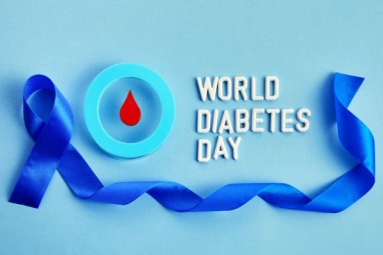
(Image source from: Canva.com)
The liver often plays the part of an unnoticed champion in our chaotic lives, which are overflowing with unhealthy foods, environmental pollutants, and stress. This organ tirelessly operates behind the scenes, clearing toxins and ensuring that your body functions at its best. Nonetheless, even this resilient organ has its boundaries.
When the liver becomes overwhelmed, it sends out distress signals that can easily be overlooked. If you notice signs like lackluster skin, persistent headaches, unexplained tiredness, or digestive issues, your body might be indicating the need for a reset. The aim of a liver detox is to provide your body with the nourishment it requires to heal and thrive, rather than relying on extreme cleanses or depriving diets.
What are the subtle indicators of a struggling liver?
- Persistent fatigue that remains despite adequate sleep.
- Bloating sensations, especially post-meals.
- Chronic brain fog leading to distraction or forgetfulness.
- Unusually pale skin.
- A heightened sensitivity to the effects of alcohol.
- Unexplained or intense headaches.
While genetics play a role, the primary burden on the liver stems from daily habits, especially in urban environments where life can become tumultuous. The continuous intake of fried or processed foods without breaks compounds this issue. Even occasional alcohol consumption can place stress on the liver over time. Additionally, using over-the-counter pain relievers indiscriminately can adversely affect liver health. Smoking or being exposed to secondhand smoke can also be detrimental, as harmful substances enter the body. When coupled with prolonged stress and irregular sleep, it creates a damaging cycle.
Fortunately, the liver is one of the few organs capable of self-repair. There is no need for drastic detox diets; simply being mindful and establishing consistent habits can lead to significant improvements. Start your day by drinking warm water or herbal teas like Tulsi or dandelion. Incorporate wholesome foods into your diet, such as leafy greens (like broccoli and cauliflower), citrus fruits, garlic, and beets. Reduce your intake of alcohol, sugar, refined carbohydrates, and avoid unnecessary medications. Engage in low-impact activities like taking a brisk 30-minute walk, stretching, or practicing yoga to promote circulation and detoxification. Aim for 7 to 8 hours of restorative sleep to help your body reset. Techniques such as journaling, listening to music, practicing deep breathing, or even dedicating 10 minutes to silence can lower cortisol levels, allowing your liver to operate more efficiently.
Once you implement these lifestyle adjustments, should you still face fatigue, skin problems, or digestive discomfort, prioritizing a liver function test is essential. Identifying liver stress early can avert long-term issues such as fatty liver disease or chronic inflammation. The liver works quietly, and vigilance is necessary to prevent damage even within overloaded systems.









